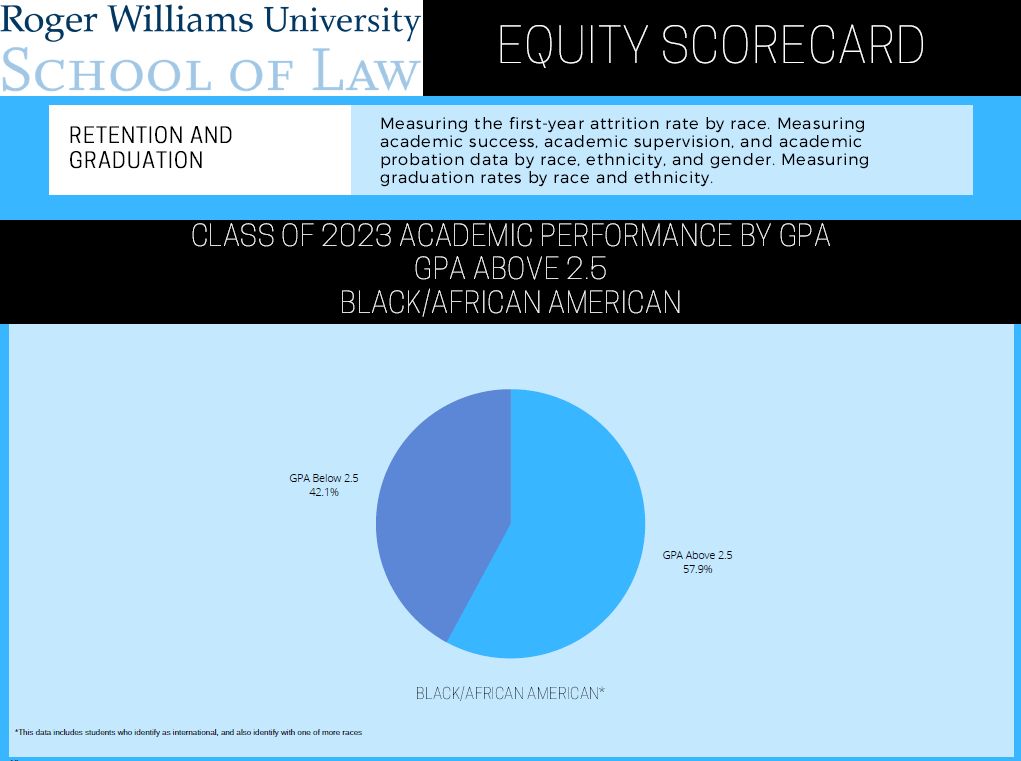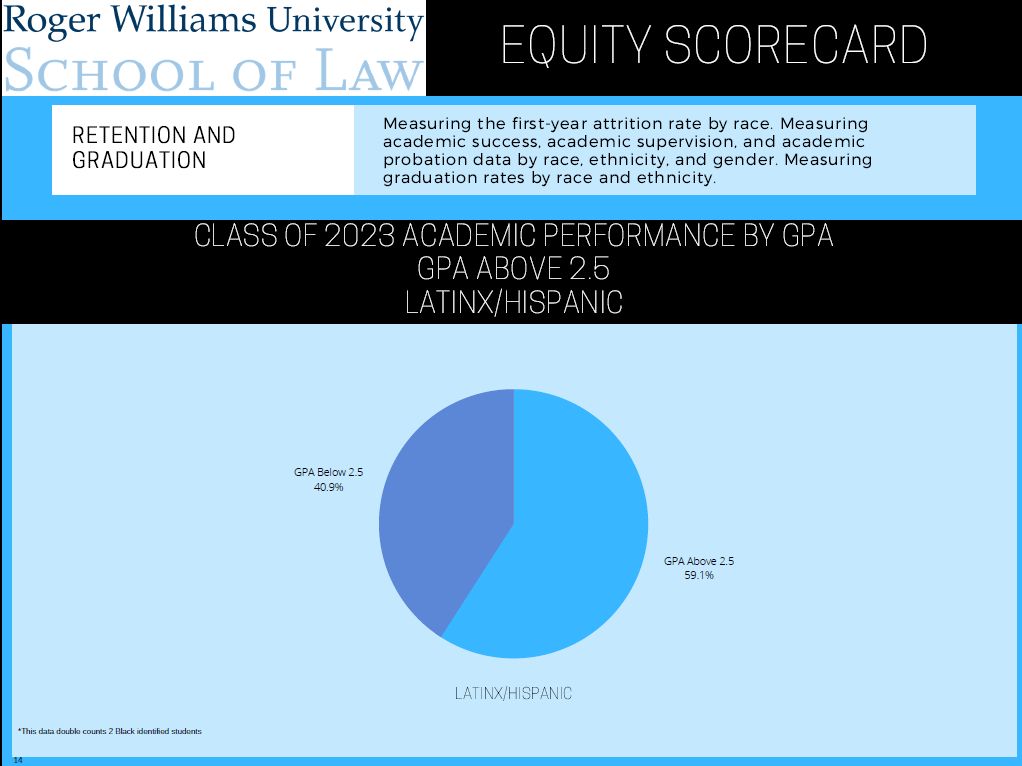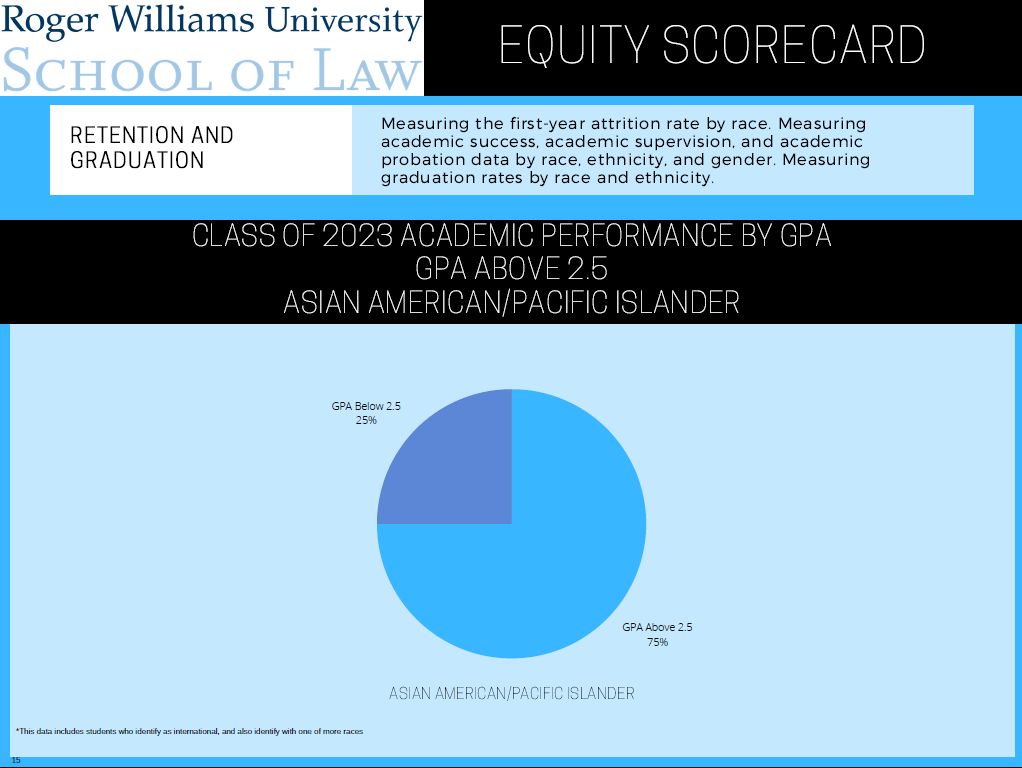RWU Law Equity Scorecard
Overview
The Roger Williams University School of Law Equity Scorecard was designed to measure the performance of our diversity, equity, and inclusion initiatives outlined in the law school’s Diversity and Inclusion Strategic Plan (2018). Our goal with this scorecard is to measure different elements related to the experience of our diverse student population. The measurements included in this scorecard include the following: admission and demographic information, retention and graduation data, bar passage, academic performance, job placement, and faculty and staff hiring. The different data points collected are intended to give us a view into our progress in creating a diverse and inclusive environment at the law school related to enrollment management, student support, campus climate, and representation within our law school community.
The information collected in this report is meant to provide an overview of diversity and inclusion at RWU Law. The equity scorecard is not meant to provide answers; this report is meant to prompt us with questions about how we are walking towards the goals that we outlined in the Diversity and Inclusion Strategic Plan and help us identify priority areas for action. Each year, consistent with our regular reporting about our progress, we will release an updated Equity Scorecard which will benchmark our progress towards these goals.
One only has to look at the lack of representation within the field of law to recognize that there are flaws deeply embedded into our systems. From admission to the bar exam, to pre-law advising, to who is represented on the bench. We also recognize that the information shared in our report is typically not made public by other law schools around the country. We wish to be transparent.
We cannot begin to make the kinds of changes needed at RWU Law if we are not measuring ourselves consistently and reporting out our progress to the community. When we do not measure ourselves authentically, we cannot hold ourselves accountable in the way that pushes our work forward. We value what we measure, and we measure what we value.
We stand with this report and the data represented within it. As much as we have been able to accomplish over the past several years since the strategic plan was released, the numbers tell us that there is still a great deal of work ahead.
.jpg)
.jpg)
.jpg)
.jpg)
.jpg)
.jpg)
.jpg)
.jpg)
.jpg)



.jpg)
.jpg)
.jpg)
.jpg)
.jpg)
.jpg)
.jpg)
.jpg)
.jpg)
.jpg)
.jpg)
.jpg)
.jpg)
.jpg)
.jpg)
